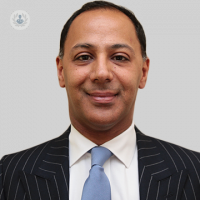ADHD and ADD: What's the difference?
Written by:ADHD and ADD are terms that are often mistakenly used interchangeably. However, they are acronyms of two distinct neurological disorders. In our latest interview, leading Windsor-based psychiatrist, Dr Ravi Mehrotra explains plainly the difference between the two conditions and clarifies the distinctive characteristics of each.

What is attention deficit disorder?
Attention deficit disorder, or ADD, is a term used to describe a condition that affects the brain resulting in symptoms of inattention, distractibility, and poor working memory. People with ADD often cannot focus their attention for a long period of time, forgetting things often and easily losing track of time, for example.
What is attention deficit hyperactivity disorder?
Attention deficit hyperactivity disorder, shortened to ADHD, is characterised by two core symptom dimensions which are hyperactivity and impulsivity, in addition to inattention issues. Hyperactivity and impulsivity symptoms include being restless, is being fidgety, squirming, being on the go, being restless, intruding on people, unable to hold or wait your turn, and also being impatient.
What is the difference between ADHD and ADD?
Although both are attention deficit disorders, they are not the same thing. In fact, ADD is actually a subtype of ADHD. For this reason, the two terms cannot be used synonymously. In ADD, inattention issues dominate, while on the contrary, in ADHD hyperactivity, impulsivity, and inattention issues are all present to some degree, or in some cases in equal measures. Some of the symptoms of inattention problems include distractibility, being unable to focus on someone who is speaking or listening to you, daydreaming, forgetfulness, and avoiding tasks that have a sustained mental effort to them.
Often patients with ADD will present as being calm and serene, whereas those with ADHD will present as being restless and agitated. Health care professionals such as paediatricians and psychiatrists can diagnose a patient and help them live with the condition.
You can book a consultation with Dr Ravi Mehrotra by visiting his Top Doctors profile.


